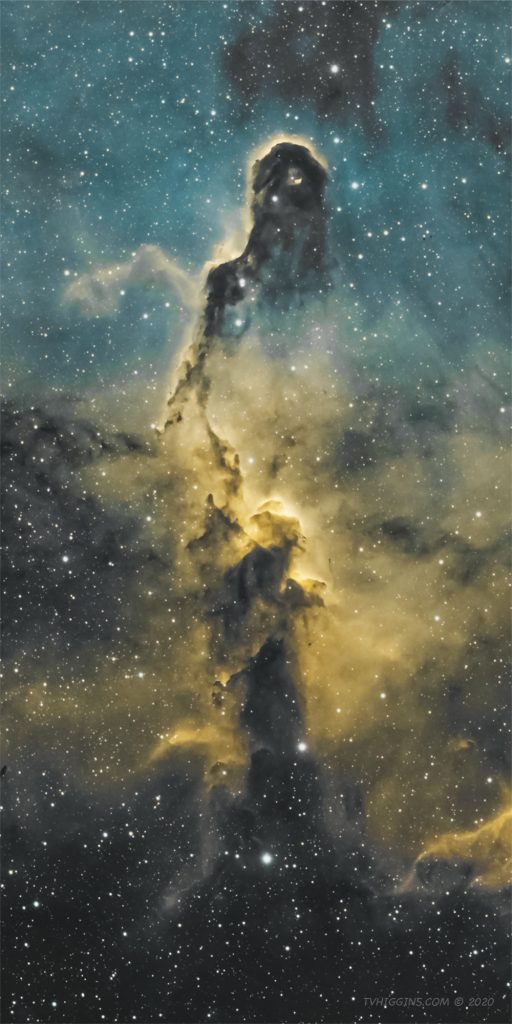- Telescope: Stellarvue SVA130T-IS
- Mount: Losmandy G-11 with Gemini 2 controller
- Autoguiding: 80-mm guide scope with ZWO ASI120-MM Mini guide camera
- Optical Configuration: 0.72x field flattener & reducer (f/5)
- Filter(s): S-II (Baader 8.0-nm); H-alpha (Baader 7-nm); O-III (Baader 8.5-nm)
- Imaging Camera: ZWO ASI1600-MM Cool
- Camera Gain: 75
- Sensor Temperature: -10° C
- Light Frames: 115 S-II subs, 113 H-alpha subs, 124 O-III subs
- Calibration Frames: 50 darks, 100 biases, 30 flats per filter
- Total Exposure Time: 1,408 min. [(115 + 113 + 124) x 4 min.] = 23 h 28 min.
- Pre-Processing: PixInsight, DeepSkyStacker
- Color Mapping: Red Channel = 100% S-II; Green Channel = 100% H-alpha; Blue Channel = 100% O-III
- Processing: Photoshop CC
- Imaging Location: Los Angeles, Calif.
This image highlights the Elephant’s Trunk Nebula (IC1396A), which is part of a much larger expanse of dust and gas (IC 1396) in the constellation Cepheus. The Nebula lies about 2,400 lightyears from Earth and features a majestic columnar cloud of compressed gases backlit by several newly formed stars, offering a spectacular look into the inner workings of a stellar nursery.
The image was shot from Los Angeles using narrowband filters in the Hubble Palette (S-II, H-alpha, O-III). It took almost two months to shoot all of the subframes. The final image uses 23 hours and 28 minutes of exposures, which represent about 70% of the total integration time. The result is a very low-noise, high-signal portrait of the Elephant’s Trunk Nebula in all of its glory.

Leave a Reply